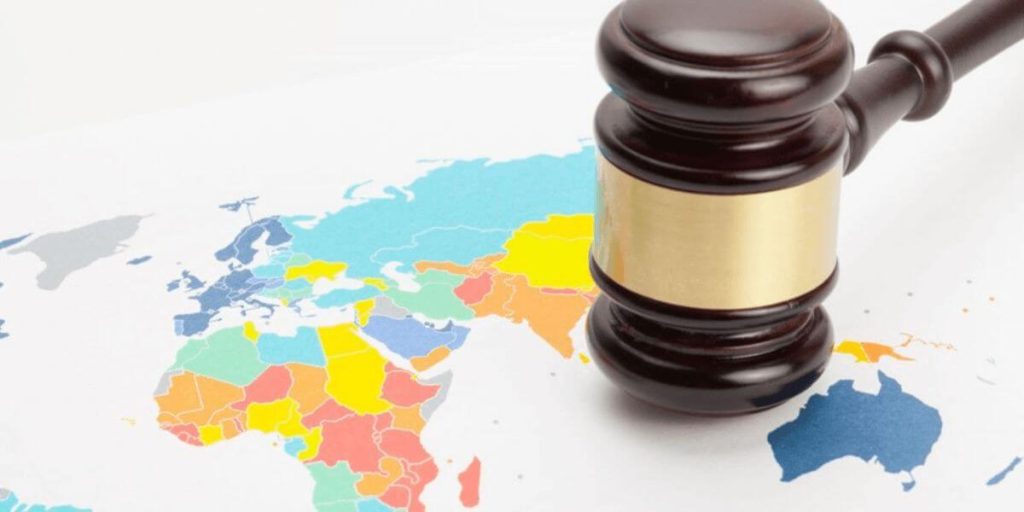International arbitration is usually used in cases where economic, political, and legal conditions are not conducive to resolving disputes in national courts. Additionally, due to its faster resolution of disputes, increased enforceability of decisions, and lower costs compared to judicial cases, international arbitration is more favored by companies and governments.
The decision between choosing international arbitration or resorting to judicial authorities depends on the conditions and type of dispute. In some cases, international arbitration can be used as an effective solution for resolving international disputes in cases such as international contracts, foreign investment, commercial matters, and more.
By using international arbitration, significant costs and time-consuming presence in the courts of different countries can be reduced. Additionally, international arbitration may not be suitable for some cases due to its preservation of privacy and exclusivity.
On the other hand, in some cases, resorting to legal authorities can be the best solution. For example, in cases where legal intervention is necessary, such as crimes and offenses, referring to the judicial authorities of different countries is mandatory.
International arbitration can be a suitable solution for resolving disputes and enjoying benefits such as faster handling of cases, greater privacy protection, and increased trust in the announced results.
For example, in cases where international companies are involved in financial, contractual, or commercial problems with each other, international arbitration can be an effective solution for resolving their disputes. Also, in cases where two parties in the fields of technology, legal, financial, or other areas are in dispute and it is important for them to resolve their differences confidentially and quickly, international arbitration can be considered as an acceptable solution.
In international arbitration, there are usually six main stages:
1- Commencement of arbitration: This stage begins with a request or complaint from the opposing party. The arbitration request should include necessary information such as the name and address of the opposing party, a description of the events and the issue under discussion, and the selection of arbitrators.
2- Selection of arbitrators: The parties must choose arbitrators. These arbitrators can be chosen through international arbitration laws or by direct selection.
3- Commencement of the hearing: At this stage, arbitrators discuss with the parties about the issues under discussion for gathering evidence and documents and reviewing the cases.
– Issuing the verdict:
After collecting evidence and hearing the arguments of the parties, the arbitrators must issue their verdict.
5- Verdict confirmation:
The issued verdict must be presented to one of the relevant judicial authorities, and if confirmed by them, the international arbitration verdict will be valid.
6- Verdict execution:
If the verdict is confirmed, the parties must act accordingly and execute the verdict promptly.
To execute an international arbitration verdict, first, it is necessary to ensure compliance with the legal and regulatory framework of the relevant country. Then, international agreements have been established to achieve understanding and cooperation among countries for executing the verdict. One of the most important international agreements in this regard is the New York Convention on the Recognition and Enforcement of Foreign Arbitral Awards.
This convention has precise laws and regulations on the execution of international arbitration verdicts in more than 150 countries and provides the necessary guarantees for executing arbitration verdicts. This convention has also determined laws regarding the translation and declaration of the verdict, objection to the verdict, non-execution of the verdict, payment of arbitration fees, etc.
Moreover, in many international arbitration contracts, the conditions and regulations for executing the verdict are included, and by signing such a contract, the parties commit to executing the verdict. If an international arbitration verdict cannot be executed due to non-compliance, the parties can refer to judicial courts to execute the verdict.
In general, individuals who are involved in an international business interaction and sign contracts that contain arbitration clauses need to pursue cases related to international arbitration.
Furthermore, legal attorneys and law firms may be selected as legal representatives to pursue cases related to international arbitration. In any case, individuals who seek to pursue cases related to international arbitration must have the necessary expertise and knowledge in this field or rely on experienced lawyers.
Paya Legal and Immigration Group proudly offers international arbitration services. Our team consists of experienced legal experts and international arbitrators who assist you in choosing the best solution for resolving disputes.
We carefully review your cases and offer the best solution for you, using our knowledge and expertise.





